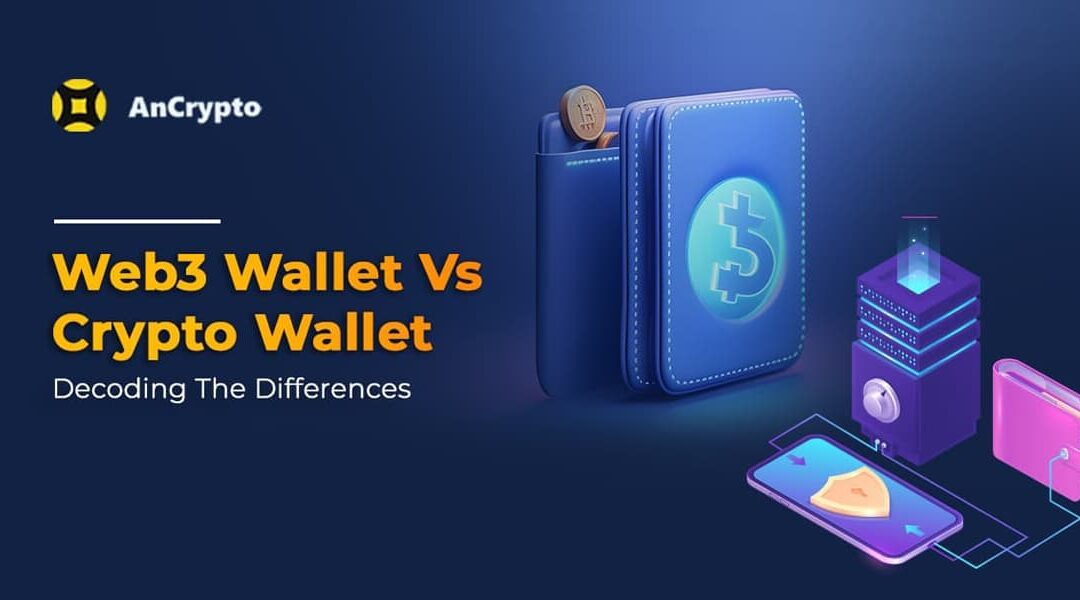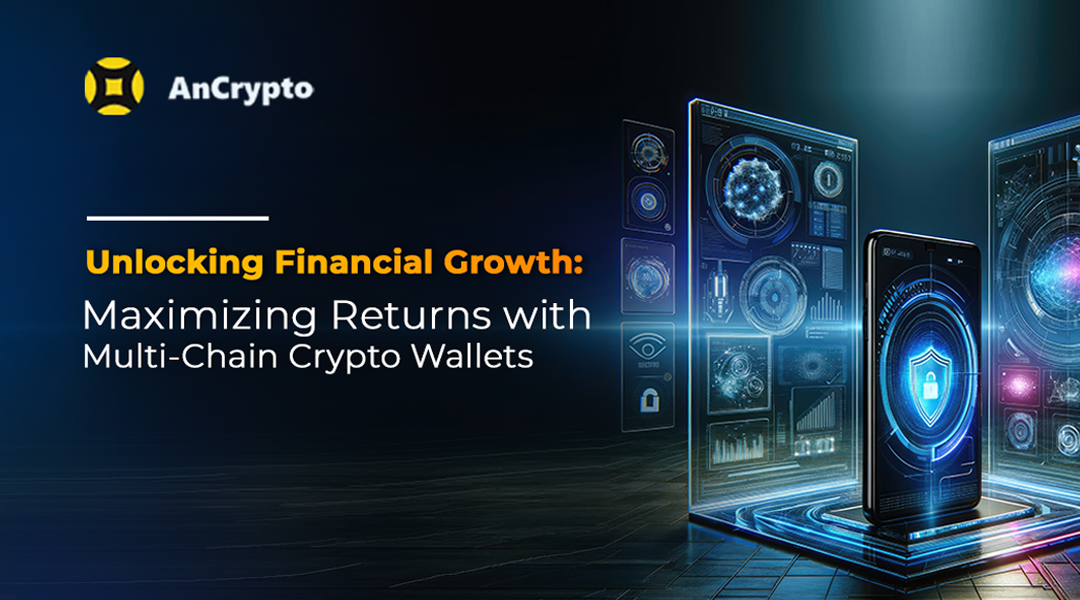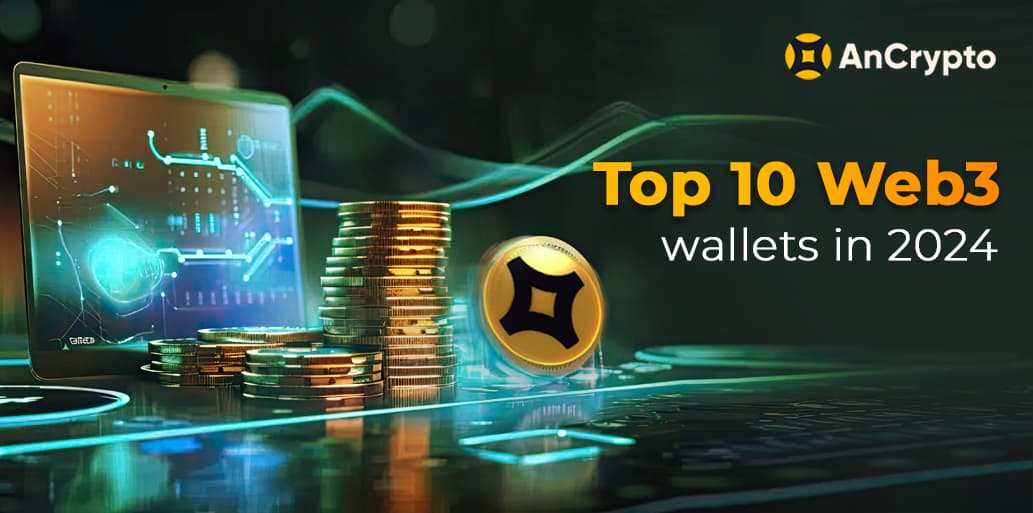Let’s acknowledge it- for years, we’ve been investing in stocks, and mutual funds for our financial growth, which involved brokers.
But, a few years back, the introduction of DeFi ( Decentralized Finance) changed everything – with a mission to grant users control and ownership of their data and finances. And, it all started with a crypto wallet- letting users transact in digital currencies without the involvement of third parties. Yet the time evolved, and we moved towards Web3 wallets– providing access to DeFi, NFTs, and Digital Marketplaces- all in one app.
But, what else makes Web3 wallet different from normal crypto wallets? Keep reading to find out!
Web3 Wallet v/s Crypto Wallet: Exploring the Distinctions
While both wallets are used for interacting with digital assets, the Web3 wallet is designed to interact with the broader web3 ecosystem where users control their data and interact directly with DeFi protocols and applications, trade on crypto wallet for NFT marketplaces, sign-in transactions, and manage digital identities.
Whereas, a crypto wallet acts as a secure digital storage unit for your cryptocurrencies. Some crypto wallets may offer additional services like built-in exchanges or the ability to buy crypto with fiat currency, but the core functionality revolves around managing crypto holdings.
Differences Between Web3 Wallets and Crypto Wallets
Here are some Key Differences:
Focus
- Crypto wallets are specifically built to manage cryptocurrencies like Ethereum, Bitcoin, Cardano, etc.
- Web3 wallets are designed to provide access to open, transparent decentralized Finance on the blockchain network.
- Crypto wallets mainly enable to store, buy, send, sell, or swap cryptocurrencies.
- Web3 wallets provide built-in access to DeFi applications, like lending platforms or decentralized exchanges, and NFT marketplaces for trading.
- Only a few crypto wallets allow interactions with DeFi and NFT platforms.
- Web3 wallets integrate Web 3 services and often come with default features to connect with decentralized finance.
- Security features in crypto wallets often depend upon their type. Custodial wallets have limited security features as provided by the service provider. Non-custodial wallets often have features like multi-signature authentication and hardware wallet integration for enhanced security.
- Web3 wallets are only non-custodial and often prioritize advanced security features. Including, built-in security checks.
- Crypto wallets are only focused on established cryptocurrencies.
- Web3 wallets accommodate the needs of the evolving Web3 ecosystem and are likely to adapt to offer better access to future innovations.
Functionality
Integration
Security
Future-proofing
Why Web3 Wallets Are the Future Of DeFi?
1. It’s a Key To the DApp Ecosystem
Web3 wallets go beyond the regular crypto wallets, it’s a key for users to interact with decentralized services such as DeFi marketplaces, applications, and blockchain platforms.
By serving as the primary source for users to access DApps and other decentralized services in one application, Web3 Wallets is paving its way to onboard more users on a Decentralized finance network by providing permissionless financial services.
2. Integrating DIDs
Web3 Wallets like AnCrypto have already integrated DIDs into their platforms to provide an easy way to trade and transact on multiple networks. Moving from wallet addresses to centralized identities and then Web3 chat wallets offers a more secure and private user experience, and helps to eliminate data breaches and identity theft-related issues.
The universal DID protocols also help to build a better and more friendly decentralized ecosystem, eliminating the hurdles associated with handling identities across multiple decentralized networks.
3. Contributing to the Token Economy
Web3 wallets offer easy interaction with different tokens on multiple blockchain platforms. With your multichain Web3 wallet, you can directly collaborate with DAOs. These are community-run projects where token ownership grants voting rights.
By casting your vote on proposals within your wallet, you have a say in shaping the future of DAOs. You can contribute to their governance and decision-making, influencing everything from development plans to core feature.
4. Empowering Users
Web3 wallets are empowering users by letting them have full control over their assets, and conduct crypto transactions without involving the intermediaries such as such as lending, borrowing, staking, and yield farming.
These decentralized transactions contribute to a fairer financial system and free users from the limits of traditional banking and high fees for transactions.
5. Providing Access To Smart Contracts
Web3 wallets are doing more than just managing assets and handling crypto transactions. They enable users to interact and deploy smart contracts governed by code and used to create tokens or execute transactions in DeFi platforms.
This helps to automate the processes, accommodate batch transactions, create flexible gas policies, and execute multiple actions in a single transaction.
6. Bringing Interoperability to Blockchains
Web3 wallets offer interoperability, enabling users to transact across multiple blockchains without switching apps. This contributes to better user experience, greater communication, and access to a vast array of decentralized services.
This connectivity between the cryptocurrencies and blockchain networks showcases wider adaptability and universal acceptance of Web3 wallet, ultimately unlocking decentralization.
Emerging Trends in the Web3 Wallet landscape
1. AI-powered Assistance:
Web3 wallets could integrate AI features to help users navigate complex DeFi protocols, recommend investment strategies, and even automate repetitive tasks.
2. Quantum-resistant cryptography:
As quantum computing advances, Web3 wallets could adopt encryption methods that are resistant to being broken by quantum computers.
3. Self-Sovereign Identity (SSI):
Web3 wallets could become custodians of your digital identity, acting like a digital passport, containing verified credentials issued by institutions you trust (banks, universities, etc.), and giving you complete control over how your data is shared and used online.
4. Metaverse Wallets:
Web3 wallets could become your primary gateway to the metaverse, allowing you to manage your virtual assets, interact with other users, and participate in the metaverse economy.
As long as Decentralized Technology continues to grow, Web3 crypto wallets will surely be crucial in determining how finance, government, and individual identity are shaped in the digital age.





